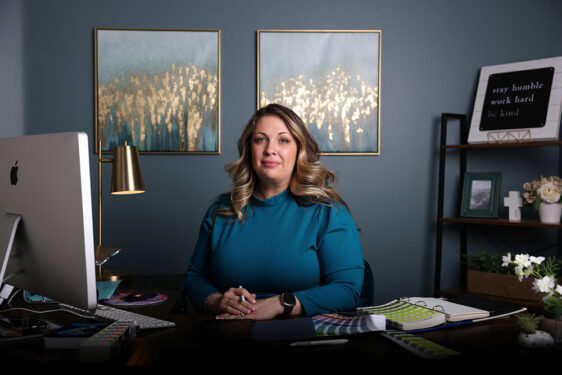
WASHINGTON — In a 6-3 vote June 30, the Supreme Court ruled in favor of a Colorado web designer who doesn’t want to design wedding websites for same-sex couples because it goes against her religious beliefs.
The court said the designer’s First Amendment rights bar Colorado anti-discrimination law from forcing her to create expressive designs with messages the designer doesn’t agree with.
“The First Amendment envisions the United States as a rich and complex place where all persons are free to think and speak as they wish, not as the government demands,” Justice Neil Gorsuch wrote.
Justice Sonia Sotomayor, in a dissenting opinion, joined by Justices Elena Kagan and Ketanji Brown Jackson, said, “Today, the Court, for the first time in its history, grants a business open to the public a constitutional right to refuse to serve members of a protected class.”
Colorado designer Lorie Smith, who runs a web design company called 303 Creative, has said she should not be required to create wedding websites for same-sex couples based on her Christian beliefs about marriage.
Colorado state law forbids businesses from discriminating based on sexual orientation. Smith contends her First Amendment right to free speech exempts her from the law.
But she lost her case in the lower court when the 10th U.S. Circuit Court of Appeals ruled that the state has a compelling interest to protect its citizens “from the harms of discrimination.”
Kristen Waggoner, the Alliance Defending Freedom attorney who represented Smith before the Supreme Court, specifically argued that companies whose work centers around expression have First Amendment protections from being compelled to say things that go against their personal beliefs.
Smith’s case is similar to a recent case involving a Colorado baker who refused to make a custom wedding cake for a same-sex couple based on his religious beliefs. In 2018, the Supreme Court ruled that the baker’s refusal to make a wedding cake did not violate Colorado’s anti-discrimination law.
But in its ruling, the court did not specifically deal with First Amendment protections allowing businesses to refuse clients’ requests based on the owners’ religious convictions.
A ruling in favor of the web designer in this case could give broad leeway to business owners to deny services based on their own beliefs and would trump anti-discrimination laws.
Sherif Girgis, an associate professor of law at Notre Dame Law School, said, “Free speech includes the freedom not to speak. The government can’t force you to say, do, or make something that carries a message you reject.”
Girgis said in an email that the court’s ruling “will allow refusals to make expressive products based on the messages they convey — not based on the identity of the customers. It’s a right to be discriminating about messages, not a license to discriminate against customers.
“If you’d refuse to facilitate a certain message no matter who asked for it, the First Amendment protects your choice. In this case, the web designer would refuse to make websites conveying support for same-sex marriage whether they were sought by gay couples planning their own wedding or straight wedding planners celebrating their work for gay couples. The First Amendment protects that right,” he added.
The U.S. Conference of Catholic Bishops, joined by the Colorado Catholic Conference and other religious groups, sided with the designer as they did with the baker five years ago. In their amicus brief they said this case gives the court the chance to clarify free speech issues it said the court fell short of doing in the previous case, Masterpiece Cakeshop v. Colorado Civil Rights Commission.
Smith has not denied a service as the baker did in refusing to bake a custom cake for the same-sex couple. Instead, she asked the court to weigh in before she even began designing wedding websites, saying she has been worried that her refusal to design a same-sex wedding website would violate Colorado’s public accommodations law.
The USCCB’s brief said there is a “pressing need for the court to clarify how the compelled speech doctrine applies to wedding-vendor cases and other disputes.” It urged the justices to do what they have done in the past: “Apply the Free Speech Clause to protect religious speech, thereby strengthening liberty not just for the religious but for all society.”
It also said the current case “provides an appropriate and especially important opportunity to invoke free speech protections again to address the ongoing tensions in wedding-vendor cases and in the current cultural context more broadly” and implored the court to “protect individuals from compelled speech and to provide space in the public square for minority voices.”
